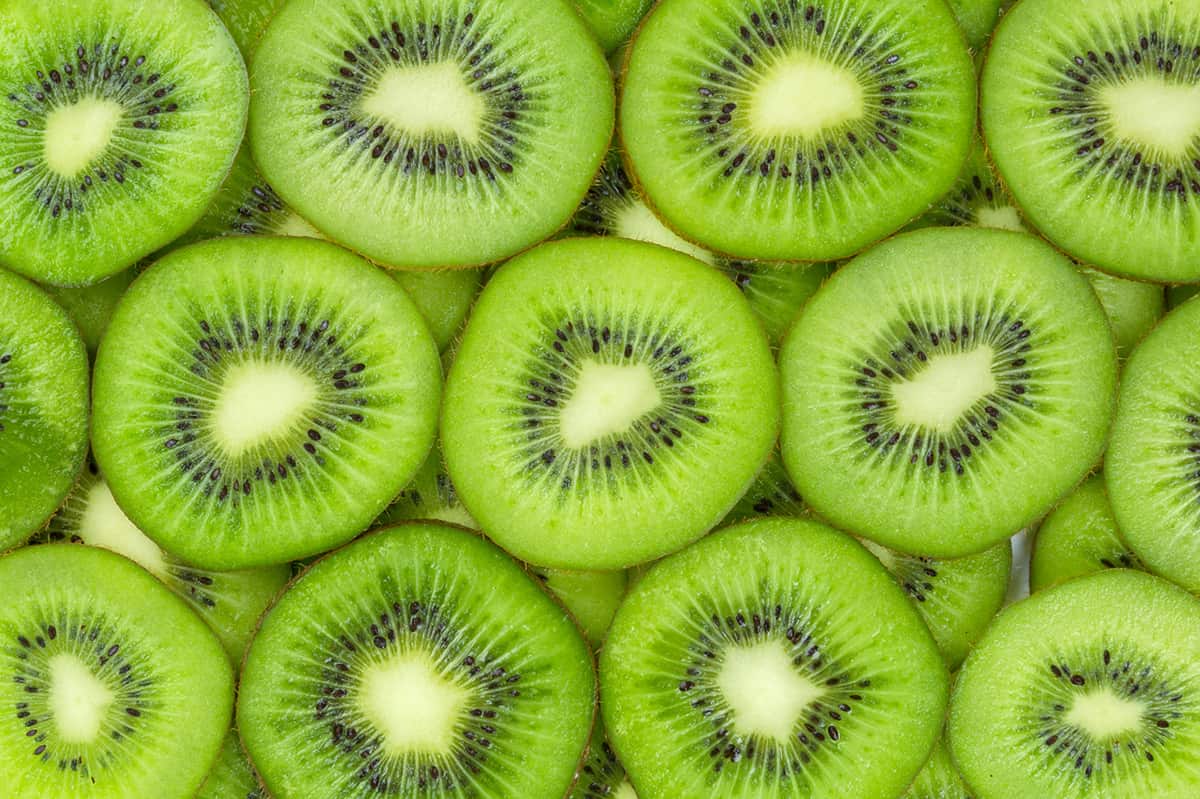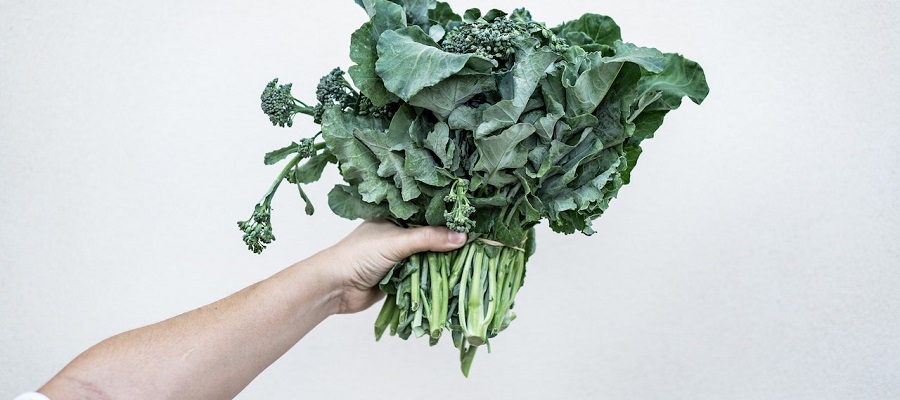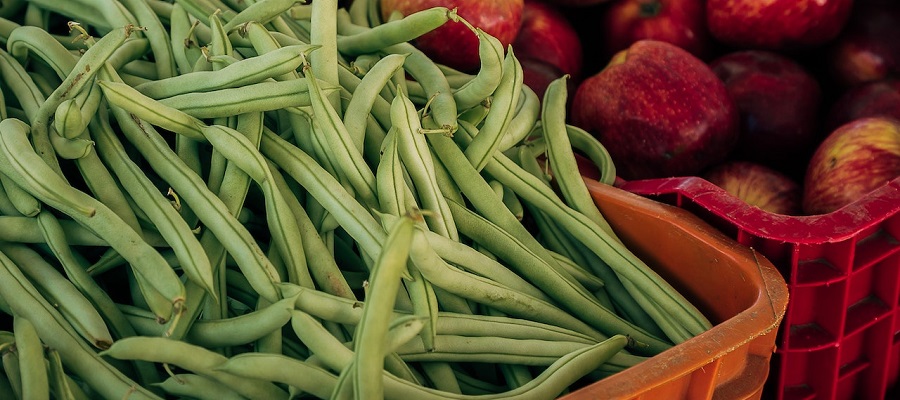Kiwi, also known as Chinese gooseberry, is a small, fuzzy fruit that is native to China. It is now widely cultivated in New Zealand and other countries.
Kiwi is a nutritious fruit that is high in vitamin C, vitamin K, vitamin E, and potassium. It also contains good amounts of folate, dietary fiber, and antioxidants. Eating kiwi can help boost the immune system, protect against heart disease, and improve digestion.
Kiwi can be eaten fresh or used in cooking and baking. The skin of the kiwi is edible, but it can be removed if desired. It is also used to make jams, jellies, and other preserves. The seeds inside the kiwi can be eaten as well, but they are not very noticeable when the kiwi is cut or mashed.
Kiwi is also a good source of vitamin E, which is an important nutrient for skin health. The high levels of Vitamin C in kiwi can also help to improve skin condition and reduce the appearance of wrinkles and fine lines.
However, some people are allergic to kiwi, particularly those who are also allergic to other fruits such as pineapple, banana and strawberry. People who have latex-fruit syndrome should avoid eating kiwi.
In terms of storage, kiwi should be kept at room temperature until fully ripe, and then stored in the refrigerator to prevent over-ripening. Ripe kiwi can last for up to one week in the refrigerator, and it can also be frozen for later use.
In conclusion, kiwi is a healthy and delicious fruit that is packed with nutrients and antioxidants. It is easy to incorporate into a healthy diet and can be enjoyed in a variety of ways.
What are the nutritional benefits of eating kiwi?
Eating kiwi offers a variety of nutritional benefits, including:
-
Vitamin C: Kiwi is an excellent source of vitamin C, which is important for maintaining a healthy immune system and protecting against infections.
-
Vitamin K: Kiwi contains high levels of vitamin K, which is necessary for blood clotting and maintaining strong bones.
-
Vitamin E: Kiwi is a good source of vitamin E, which is important for skin health and may help to reduce the risk of certain types of cancer.
-
Potassium: Kiwi is a good source of potassium, which is important for maintaining healthy blood pressure levels and supporting proper muscle and nerve function.
-
Folate: Kiwi contains good amounts of folate, which is important for pregnant women and for preventing certain birth defects.
-
Fiber: Kiwi contains dietary fiber, which is important for maintaining healthy digestion and preventing constipation.
-
Antioxidants: Kiwi contains antioxidants, which can help to protect cells from damage and reduce the risk of certain diseases.
-
Support of Heart Health: The high levels of potassium and vitamin C in kiwi may help to lower blood pressure and improve heart health.
-
Improved digestion: The high levels of fiber in kiwi can help to improve digestion and relieve constipation.
-
Improved Skin: The high levels of Vitamin C in kiwi can also help to improve skin condition and reduce the appearance of wrinkles and fine lines.
Is kiwi a good source of fiber?
Yes, kiwi is a good source of dietary fiber. A medium-sized kiwi (69 grams) contains around 2 grams of fiber, which is about 8% of the recommended daily value. The fiber in kiwi is mostly found in the skin and seeds, so eating kiwi with the skin on will provide more fiber than eating it without the skin. Fiber is important for maintaining healthy digestion and preventing constipation. Eating foods high in fiber can also help to lower cholesterol levels and control blood sugar levels.
Can kiwi be beneficial for heart health?
Yes, kiwi can be beneficial for heart health. The high levels of vitamin C, potassium, and antioxidants in kiwi can help to protect the heart and improve heart health.
-
Potassium: Kiwi is a good source of potassium, which is important for maintaining healthy blood pressure levels. High potassium intake is associated with a lower risk of hypertension and stroke.
-
Vitamin C: Kiwi is an excellent source of vitamin C, which is important for maintaining a healthy immune system. Vitamin C has been shown to reduce the risk of heart disease by reducing inflammation and promoting healthy blood vessel function.
-
Antioxidants: Kiwi contains antioxidants, which can help to protect cells from damage and reduce the risk of certain diseases. The antioxidants present in kiwi such as polyphenols and flavonoids can help to protect the heart from damage.
-
Fiber: Kiwi contains dietary fiber which is important for maintaining healthy digestion and preventing constipation. Eating foods high in fiber can also help to lower cholesterol levels and control blood sugar levels.
-
Omega-3 fatty acids: Kiwifruit is also a good source of omega-3 fatty acids, which have been shown to have beneficial effects on heart health by reducing inflammation and promoting healthy blood vessel function.
It's important to note that while kiwi can be beneficial for heart health, it should be consumed as part of a healthy diet that includes a variety of fruits and vegetables, and an appropriate balance of nutrients.
Are there any potential interactions or side effects from consuming kiwi?
Generally, kiwi is considered safe to consume and does not have any significant side effects. However, some people may experience minor side effects such as an allergic reaction, stomach upset or mild diarrhea.
-
Allergic reactions: Some people may be allergic to kiwi and may experience symptoms such as hives, itching, swelling, difficulty breathing, and anaphylaxis. People who have latex-fruit syndrome should avoid eating kiwi.
-
Stomach upset: Kiwi contains an enzyme called actinidin which may cause some individuals to experience stomach upset, bloating or mild diarrhea.
-
Medication Interactions: Kiwi may interact with blood-thinning medications such as warfarin and aspirin. People who are taking these medications should speak with their doctor before consuming kiwi.
-
Pregnancy: Kiwi is safe to consume during pregnancy, but it should be eaten in moderation as it contains high levels of vitamin K which may interfere with blood-clotting medications.
-
Latex-Fruit Syndrome: Some people who are allergic to latex may also have a reaction to certain fruits, including kiwi, avocado, banana, chestnut and passion fruit.
It's important to note that some of the above side effects are rare and most people can enjoy kiwi as a part of a healthy diet. If you're concerned about any potential side effects, it's best to consult with a healthcare professional.
Can kiwi be consumed by people with diabetes?
Kiwi can be consumed by people with diabetes, but it should be eaten in moderation. Kiwi is a low to medium glycemic index (GI) food which means it has a relatively low effect on blood sugar levels. One medium-sized kiwi (69 grams) contains around 6 grams of sugar, which is less than many other fruits. Eating a moderate portion of kiwi as part of a healthy diet can be a good option for people with diabetes.
However, it's important to keep in mind that people with diabetes should monitor their carbohydrate intake and blood sugar levels closely. They should also consult with a healthcare professional or a registered dietitian to develop a meal plan that works for them.
Eating kiwi along with other low-GI foods such as vegetables, lean protein and whole grains can help to slow the absorption of sugar and reduce the effect on blood sugar levels.
In addition, Kiwi is a good source of fiber which may help to improve digestion and reduce the risk of constipation. Fiber can also help to slow down the absorption of sugar and improve blood sugar control.
It's essential for people with diabetes to have a healthy diet, but it's also important to balance it with regular physical activity and medications when needed, under the guidance of a healthcare professional.
Can kiwi be eaten by people with a latex allergy?
Some people who are allergic to latex may also experience a reaction when consuming certain fruits, including kiwi, avocado, banana, chestnut, and passion fruit. This is known as latex-fruit syndrome. If you have a latex allergy, it is best to avoid eating kiwi and other fruits that are known to cause a reaction.
Symptoms of a latex-fruit allergy can include itching, hives, swelling, difficulty breathing, and anaphylaxis. If you have a latex allergy and experience any of these symptoms after eating kiwi, seek medical attention immediately.
It's important to note that not all people with latex allergy will have a reaction to these fruits. Some people may be able to consume kiwi and other fruits without any issue. If you're unsure whether you have a latex-fruit allergy, it's best to consult with an allergist.
If you are allergic to latex, it's important to be aware of cross-reactions with certain foods and to take the necessary precautions to avoid them. This can include reading food labels carefully, asking about ingredients when eating out and carrying an epinephrine auto-injector with you at all times.
It's also important to consult with a healthcare professional or a registered dietitian to develop a meal plan that works for you.
Does kiwi contain any antioxidants?
Yes, kiwi contains antioxidants. Antioxidants are compounds that protect cells from damage by neutralizing harmful molecules called free radicals. Kiwi contains a variety of antioxidants, including polyphenols and flavonoids. These antioxidants in kiwi can help to protect the body from damage, reduce inflammation and lower the risk of certain diseases.
Kiwi is a good source of Vitamin C which is a potent antioxidant that can help to protect the body from damage caused by free radicals. It is also rich in other antioxidants such as carotenoids and polyphenols. These nutrients can help to reduce the risk of heart disease, cancer, and other chronic health conditions by neutralizing harmful molecules in the body.
The antioxidants present in kiwi are not only beneficial for overall health but also have specific benefits for the skin. Vitamin C is known to boost collagen production, which helps to keep the skin looking youthful and firm.
It's important to note that the antioxidant content of kiwi can vary depending on the ripeness of the fruit, the variety, and the conditions under which it was grown. Eating a variety of fruits and vegetables is the best way to ensure that you are getting a wide range of antioxidants in your diet.


